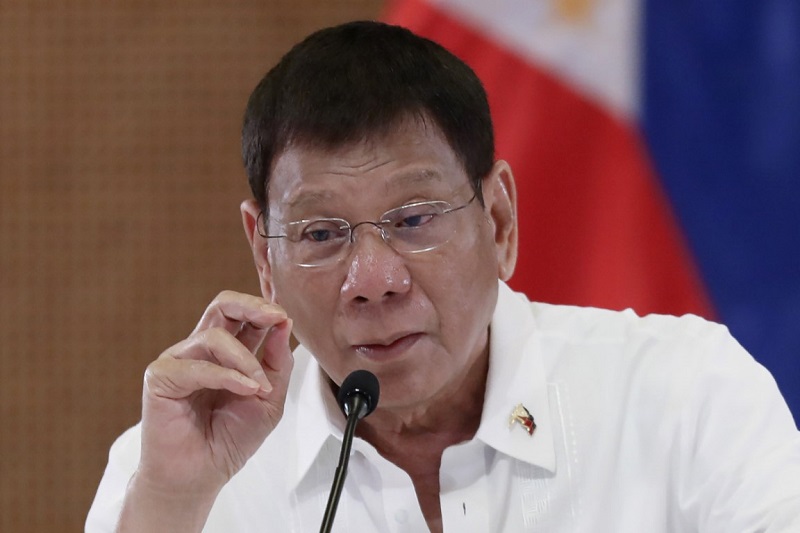
Philippines President retires and gives way to his daughter in the Elections
![]() Philippines – The former lawyer and mayor of the city of Davao, Rodrigo Duterte, went down in history as the “executioner” for killing thousands of actual and alleged drug dealers. In the office for candidacy registration, the current president of the Philippines announced his decision to reporters accompanied by party mate PDP-Laban, the faithful senator Christopher “Bong” Go. Only at the exit did he make it known that it was “Bong” who signed and not him, suggesting the next move or the attempt to start the Duterte dynasty in national politics.
Philippines – The former lawyer and mayor of the city of Davao, Rodrigo Duterte, went down in history as the “executioner” for killing thousands of actual and alleged drug dealers. In the office for candidacy registration, the current president of the Philippines announced his decision to reporters accompanied by party mate PDP-Laban, the faithful senator Christopher “Bong” Go. Only at the exit did he make it known that it was “Bong” who signed and not him, suggesting the next move or the attempt to start the Duterte dynasty in national politics.
His daughter Sara, a lawyer as her father and as the mayor father of Davao for several legislatures, just today has resubmitted her candidacy for the same position at the helm of the populous southern city. But many, like the senator and law professor Antonio La Vina, are confident that this novelty “allows Sara Duterte to run” for the place of father Rodrigo in the Malacañang presidential palace in Manila, given that he is at the top of many polls’ approval. A government spokesman had already aired this hypothesis in a statement in recent weeks.
La Vina does not feel like ruling out another twist between now and mid-November, the deadline to replace the list of current candidates for the vice-presidency, a position elected separately by the chief executive. Suppose the executioner resumes the place of his recent replacement at the last moment and returns to active politics. In that case, Sara will have to give up the dream of the presidency because – as she said – it would not be appropriate to see two Duterte at the top of the state.
Related Posts
But let’s get to the facts known so far. First, the term of office for the presidency of the Catholic archipelago has a non-renewable 6-year ceiling provided for by a written constitution to prevent other dictators such as Ferdinando Marcos from coming to power. Second, even for the post of deputy, there are insurmountable obstacles to applying the principles of the Carta Magna written in 1987 in the wake of a vast popular movement for democracy. “The overwhelming sentiment of the Filipinos – said Duterte announcing the withdrawal – is that I am not qualified, and it would be a constitutional violation to evade the law, the spirit of the constitution.”
Whatever the final decision, his authoritarian role has already been disruptive on the political scene and in Philippine society. As has his heaviest legacy impact, the war on drugs, which sees him indicted by the International Criminal Court in The Hague for severe violations of human rights. In June, the latest figures from his government speak of 6,117 suspected drug dealers killed during Duterte’s tenure in 2016 to April this year.
But the United Nations calculated that already in June 2020, the confirmed deaths were 8,600 against the 27-30 thousand reported by human rights groups, with summary executions of then suspected innocent results, including 73 babies, the youngest just five months old. The same Philippine police in a 2017 report reported 16,355 “murder cases under investigation” as a result of the war on drugs.
As Time magazine called it, the title of Executioner or Punisher, Duterte had already won it when as mayor of Davao from the late 80s to ’98. From 2001 to 2016, he had created special death squads parallel or integrated into the police ranks. In a region where gangs of mafia, communist, and Islamic guerrillas of the infamous Abu Sayyaf group have operated for decades, his people perceived him as a sort of saviour. “If Duterte exists – said the housewife July Alonzo met in Davao after his election as president in June six years ago -” it is because the Lord wants to free us from crime and terrorism, as he freed Sodom from the degenerates.”




